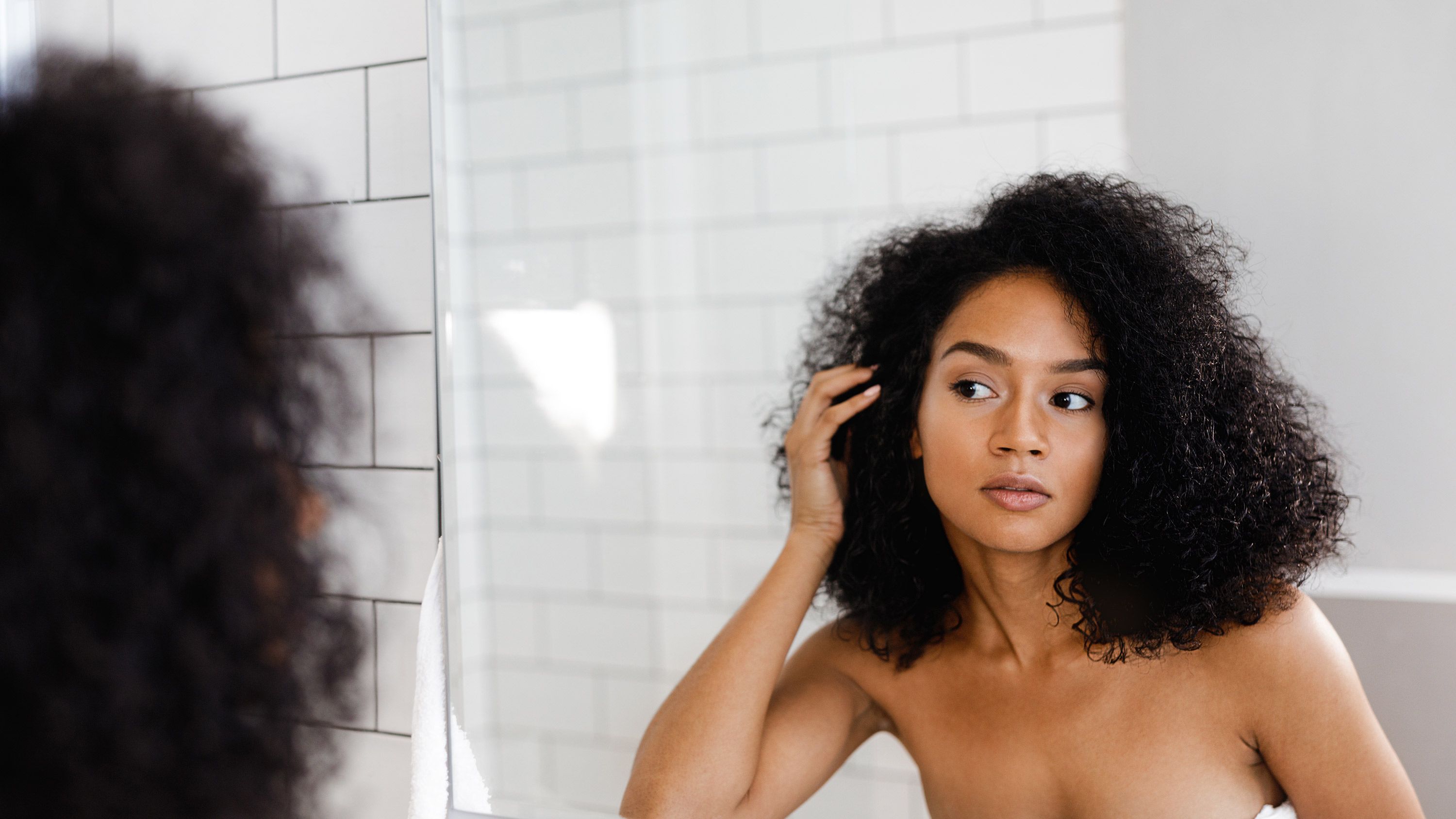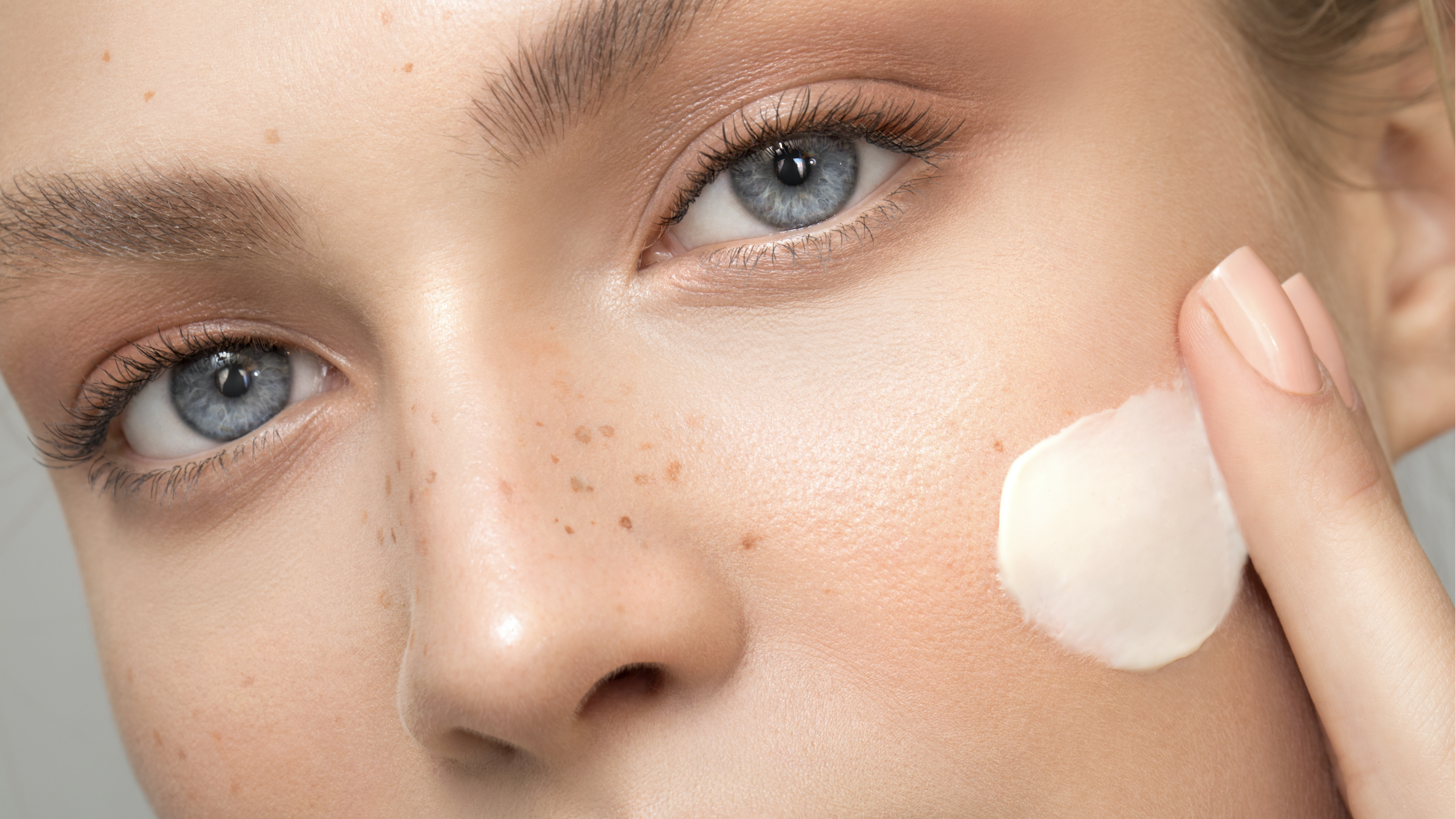Derms Weigh In on Reddit’s Weirdest Skin Confessions
How bad are these skincare habits?

If you’ve ever gone deep down a Reddit hole, you know that it can be an overwhelming and sometimes dark place, but also hugely useful and affirming if you find the right community. One of the biggest communities is #SkincareAddicition, which currently has more than one million subscribers. Most of its content is made up of helpful advice, product reviews, and empowering photo exchanges, but the scariest (and arguably most interesting) information found there? Skincare confessions.
Considering the anonymity that Reddit provides, it’s not a huge surprise that people go there to spill their deepest skin secrets, like washing their face with dish soap or using a razor blade to get at an ingrown hair. But just how bad are these clandestine habits? We’ve compiled a smattering of the juiciest confessions and tapped two celebrity dermatologists, Dr. Shari Marchbein and Dr. Joshua Zeichner, to determine if these anonymous commenters are onto something or if their skin sins should be avoided by others at all costs.
Marchbein: “Dawn detergent is far too harsh on the delicate facial skin to use. Remember: Squeaky clean means that you are overly clean, and the important oils found naturally on our skin to maintain a healthy skin barrier have been stripped. However, dish soap can work well on the scalp (a much thicker skin area) for those complaining of oiliness.”
Zeichner: “Dishwashing detergents are extremely effective at removing oil, explaining why they can take grease off your plates. However, they have a more alkaline pH than traditional facial cleansers which may lead to disruption of the skin barrier.”
Marchbein: “This is a potentially dangerous at-home practice for a number of reasons. A sewing needle that’s neither clean nor sterile can be a source of infection when it punctures the skin. I have also seen hyperpigmentation and scars caused from those trying to extract at home because they don’t realize how much or little pressure needs to be applied during extractions. Leave this to the professionals.”
Zeichner: “I do not recommend extracting your own milia at home. Picking the wrong way can lead to infections or even permanent scarring. If you do decide to pick at home, then at least make sure that you thoroughly wash your hands and skin, and use a clean needle. And get a sharp [objects] container because it is not safe to throw away surgical needles in the regular garbage.”
Marchbein: “This is where a board-certified dermatologist can help you. There are so many skincare options these days and most people don’t actually know which ones to choose, as it can be overwhelming (I think social media also makes this worse). Key daily skincare products are a gentle cleanser for face and a different one for body, facial moisturizer with SPF in the morning, and either a moisturizing lotion or cream (depending how dry your face is) at night. Lastly, a high-quality vitamin C serum in the morning is important to prevent oxidative damage, and a retinoid at night for anti-aging. I recommend narrowing down your favorites or consulting with your dermatologist who can help formulate a skincare routine based on your individual needs.”
Get exclusive access to fashion and beauty trends, hot-off-the-press celebrity news, and more.
Zeichner: “To be effective, your skincare routine needs to be consistent. It typically takes several weeks for active ingredients to start to exert their effects. It is important to put together the right routine for your skincare needs. Just because a product is free, expensive, or new does not mean it is right for you.”
Marchbein: “This is actually not such a terrible sin. Most dermatologists recommend washing your face twice daily, both morning and evening. But this may vary based on your skin type. For those with dry or sensitive skin, washing once a day at night is likely enough, whereas for oily skin, washing twice daily is better. It could also vary based on what products you apply to your skin those times of day (for example, if you are using a nighttime acne routine, you would want to make sure to rinse those products off in the morning with a gentle cleanser). If you are going to skip one, it is better to forgo the morning rather than the evening wash. It is extremely important to wash your face at night to remove makeup, dirt, and pollutants that have accumulated on your skin during the day.”
Zeichner: “If you have to commit a skin sin, this is not a bad one so long as you have washed your face the night before. Most people can get away with skipping washing their faces in the morning.”
Marchbein: “Moisturizers (a.k.a. emollients) are important because they help us maintain a healthy skin barrier and prevent cracked, dry skin. Humectants on the other hand attract and bind to water molecules and increase water content of the skin. In general, you want whatever you’re using to have a combination of emollients and humectants. Some of the most important ingredients to look for are deeply hydrating ingredients such as ceramides, glycerin, shea butter, dimethicone, and hyaluronic acid.”
Zeichner: “The latest advances in cosmetic chemistry have brought many new textures and delivery systems to the market. Oils have become extremely popular and can give the same types of emollient benefits that traditional cream moisturizers provide.”
Marchbein: “I don’t think patch testing is necessary unless you have very sensitive skin or allergic contact dermatitis (in which case you should be avoiding certain ingredients altogether). Although trying multiple new products may not be harmful for most of us, there is a higher risk of skin irritation. For that reason, I typically recommend trying one new product every 2 weeks to ensure both tolerability and efficacy.”
Zeichner: “Big mistake. If you develop a rash and you have started multiple products at the same time, then you won’t know which product is the culprit. This is especially important if you are using products that contain fragrances or products that are potentially irritating like hydroxy acids, retinoids, or vitamin C.”
Marchbein: “Sunscreen should be worn every day of the year—rain or shine, warm or cold. No sunscreen, regardless of strength or number, protects for longer than two hours without reapplication, especially in the summer months. You should be reapplying a shot glass–amount to the body and a teaspoon amount to the face every two hours.”
Zeichner: “UV light has been shown to lead to premature aging and skin cancer. Sunscreen should be reapplied every two hours, as exposure to UV light deactivates the skin-protecting ingredients. Not reapplying sunscreen means that your skin is at risk for sunburn and UV damage later in the day.”
Marchbein: “This is an absolute no-no! Falling asleep with makeup on traps in the oil, dirt, pollution, and makeup from the day and can lead to acne breakouts and the appearance of larger pores. Please make sure to rinse with a gentle cleanser every night before bed.”
Zeichner: “Just because makeup is labeled longwear doesn’t mean you should use it that way. Sleeping in makeup can lead to irritation, inflammation, and acne breakouts. If you are too lazy to go to the bathroom to wash your face, at least keep makeup removing towelettes in your bedside table.”
Marchbein: “I wouldn’t recommend this for most people (although I think it is very common for men to use one product for everything) as the skin on the face is more delicate and prone to irritation than other areas of the body. Therefore, it requires specific skincare products geared to the face.”
Zeichner: “If you do not have sensitive skin, then your face may be able to tolerate the cleansing ingredients found in body washes or shampoos. They all contain similar types of surfactants that grab onto dirt and oil and remove it from the skin and the hair. In fact, the latest generation of body washes are mild enough to use on the face even in sensitive skin individuals.”
Marchbein: “Actually, micellar water is an excellent way of removing dirt and makeup from the skin and Pond’s cold cream is an extremely gentle way to remove makeup. Just remember that water alone is not sufficient to remove dirt, sweat, and pollution. Instead, use cleansers that are gentle, moisturizing, and won’t disrupt the skin’s barrier.”
Zeichner: “Micellar water was first popularized in France, and women there barely use tap water to clean their faces. Depending on where you live, the water may be considered hard, meaning it contains high levels of minerals like calcium. Hard water can be damaging to the outer skin layer, so micellar water is a good substitute for tap water and can effectively remove dirt, oil, and makeup from the skin. Facial wipes can also be extremely effective. If you do not have sensitive skin, they can be used regularly to wash your face.”
Marchbein: “Although I typically recommend separate moisturizers for face and body given that they typically contain different ingredients that cater to one body part or another, but using your body moisturizer on your face is actually okay for certain products, like Cerave moisturizing cream and Vanicream. While neither have SPF (so you would need a separate sunscreen on top when applying to the face), both are hypoallergenic, fragrance-free, and deeply moisturizing. This doesn’t hold true for all products, however, so be cautious.”
Zeichner: “The main difference between face moisturizers and body moisturizers are the added anti-aging and cosmetic benefits. While body moisturizers typically do not offer these, they can provide the same level of hydration to your face as traditional facial moisturizers.”
Marchbein: “I would strongly advise against cutting the skin or plucking out hairs as this can cause infection, scarring, and hyperpigmentation. It also leads to a vicious cycle of more ingrowns, as that hair grows back and gets further trapped under the skin. For those who get ingrown hairs from shaving, laser hair removal is a great option for permanent hair removal. For those who get inflamed ingrown hairs, called folliculitis, your dermatologist can prescribe medication to help with the redness and pain. And for a large cystic breakout, your dermatologist can inject a low dose steroid into the cyst to improve the inflammation and discomfort quickly.”
Zeichner: “If you develop a painful ingrown hair, visit your dermatologist for help. Cutting your skin with a razor blade may cause a deep gash with uncontrollable bleeding, increase your risk of developing an infection, and even leave you with a noticeable scar.”
Marchbein: “Physical exfoliants are not intrinsically bad (I use and love them myself), but you do want to make sure the particles are fine so as to not irritate the skin. Over-exfoliation with chemical or physical exfoliants can lead to red, flaky, irritated skin.”
Zeichner: “If you do not have sensitive skin, then most people can tolerate walnut shell facial scrubs. Just make sure to apply a moisturizer to your skin after exfoliating.”
For more stories like this, including celebrity news, beauty and fashion advice, savvy political commentary, and fascinating features, sign up for the Marie Claire newsletter.
RELATED STORY

Hana Hong is the beauty assistant at Marie Claire, where she covers skincare, makeup, and haircare, and is identifiable by her signature cateye.

